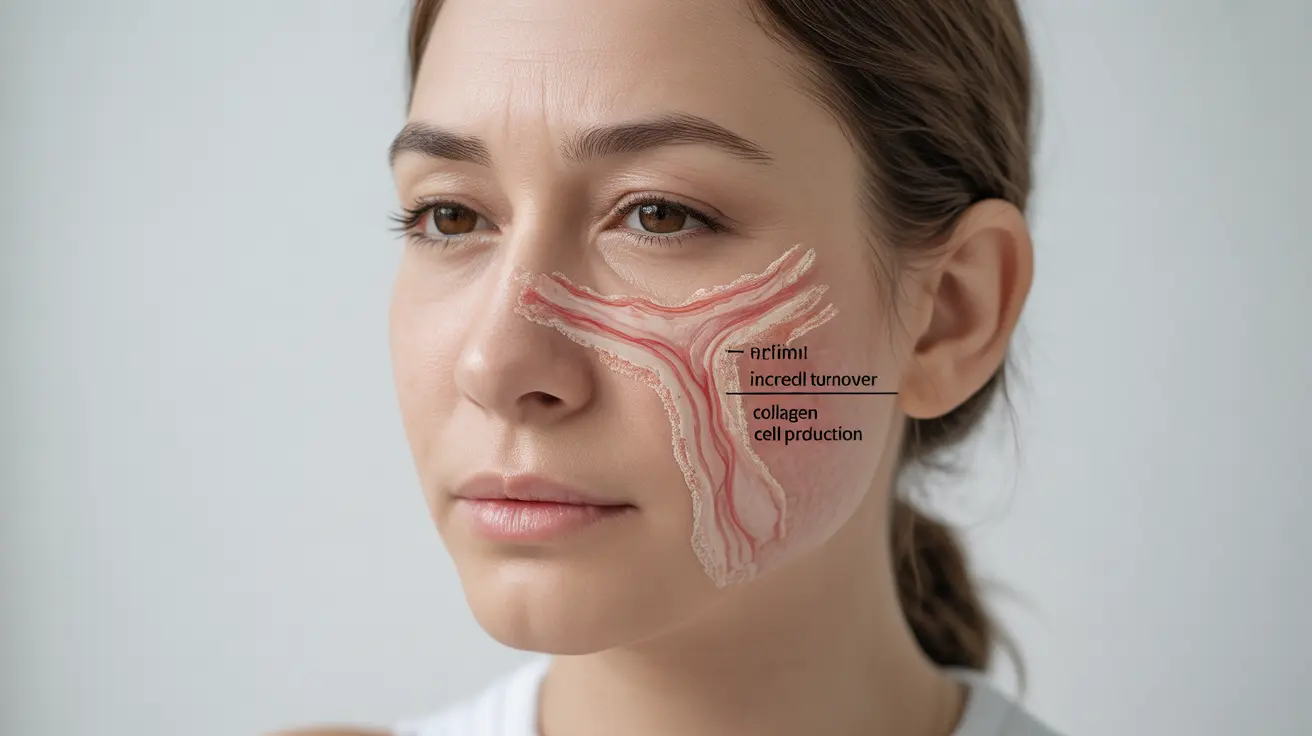Retinol, a derivative of vitamin A and a popular skincare ingredient, has gained significant attention for its anti-aging and skin-transforming properties. However, many people wonder about its safety and potential risks. Understanding both the benefits and drawbacks of retinol is crucial for making informed decisions about incorporating it into your skincare routine.
While retinol is generally considered safe when used correctly, it's important to be aware of its potential effects on your skin and overall health. Let's explore the key considerations, safety concerns, and best practices for using retinol effectively.
Understanding Retinol's Effects on Your Skin
Retinol works by increasing cell turnover and stimulating collagen production in your skin. While these processes can lead to improved skin appearance, they can also cause initial irritation and sensitivity, especially for new users.
The ingredient's potency means it should be introduced gradually into your skincare routine. Starting with a lower concentration (0.25-0.5%) and using it just once or twice a week can help your skin build tolerance while minimizing potential adverse reactions.
Common Side Effects and Safety Concerns
Initial Skin Reactions
When first using retinol, you may experience what's known as the "retinization period," which can include:
- Redness and irritation
- Dry, flaking skin
- Mild peeling
- Temporary increased sensitivity
Special Considerations for Sensitive Skin
If you have sensitive skin, you'll need to be particularly cautious with retinol use. Consider these safety measures:
- Start with the lowest available concentration
- Buffer retinol by mixing it with moisturizer
- Use it only once or twice weekly initially
- Monitor your skin's response carefully
Sun Sensitivity and Protection
Retinol can make your skin more susceptible to sun damage, requiring extra precautions:
- Apply retinol products only at night
- Use broad-spectrum SPF 30+ sunscreen daily
- Wear protective clothing when outdoors
- Avoid prolonged sun exposure
Pregnancy and Breastfeeding Concerns
One of the most significant safety considerations with retinol involves pregnancy and breastfeeding. Medical professionals strongly advise against using retinol during these periods due to potential risks to fetal development and infant health. Alternative ingredients like peptides or niacinamide are considered safer options during these times.
Long-term Usage and Safety
When used properly, retinol has a strong safety profile for long-term use. However, maintaining proper usage guidelines is essential for preventing potential adverse effects:
- Follow product instructions carefully
- Don't exceed recommended concentrations
- Take breaks if experiencing excessive irritation
- Maintain a strong moisture barrier
Frequently Asked Questions
1. Is retinol safe to use on sensitive skin or for first-time users?
Retinol can be safe for sensitive skin and first-time users when introduced gradually. Start with a low concentration (0.25-0.5%) and use it once weekly, gradually increasing frequency as your skin develops tolerance. Always perform a patch test first.
2. What are the common side effects of retinol and how can I minimize them?
Common side effects include redness, peeling, and dryness. Minimize these by starting with a low concentration, using it 1-2 times weekly initially, applying moisturizer, and always using sunscreen. If irritation becomes severe, reduce frequency or take a break.
3. Why should pregnant or breastfeeding women avoid using retinol?
Pregnant and breastfeeding women should avoid retinol because it's a vitamin A derivative that may potentially affect fetal development or transfer through breast milk. Healthcare providers recommend switching to pregnancy-safe alternatives during these periods.
4. How does retinol increase my skin's sensitivity to the sun and what precautions should I take?
Retinol increases cell turnover, making skin more vulnerable to UV damage. Always apply retinol at night, use broad-spectrum SPF 30+ sunscreen daily, and wear protective clothing when outdoors to prevent sun damage.
5. Can retinol cause long-term skin damage or health risks if used incorrectly?
When used incorrectly, retinol can cause barrier damage and chronic irritation. However, following proper usage guidelines and paying attention to your skin's response can prevent long-term issues. Most people can safely use retinol as part of their regular skincare routine with appropriate precautions.




